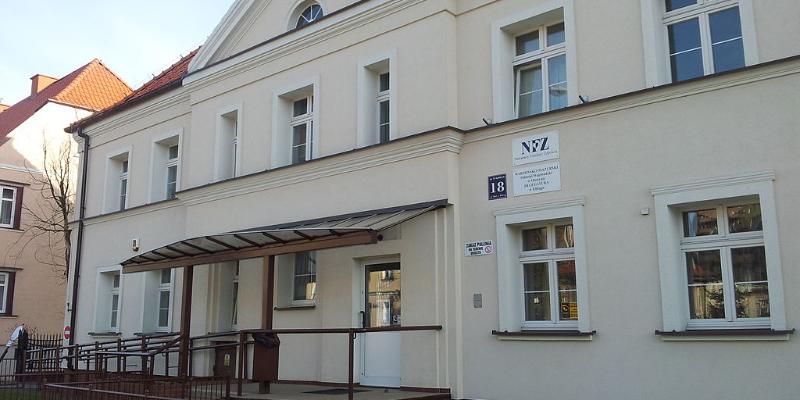The National Health Fund (NFZ) is an intermediate body between the patient and the State. It finances health services as part of the common health-insurance system, and deals with pricing and contracting services, while identifying their quality and availability.
The Fund logo is placed on the buildings of branches providing financial benefits by the Fund as part of the common health-insurance system. The logo is also attached to chemist's shop doors where patients can get their prescription filled in for reimbursed medicines.
The Fund prepares a budget every year in which it specifies future earnings and expenditures; the budget is amended many times during the year. In 2013, the NFZ budget reached over PLN 63 mld.
WHAT ARE THE NFZ’S DUTIES?
NFZ is generally known as a payer. It is administers the budget which includes money from obligatory health insurance contributions. The Fund finances health services provided to the insured, inter alia, as part of the primary and specialist healthcare, treatment in hospitals and health resorts. Financial resources for the reimbursement of medicines and orthopaedic equipment are also taken from the budget.
The NFZ’s duties include specifying the quality of health services. The Fund analyses their costs in order to provide a reimbursement evaluation of the cost of services, while signing agreements with doctors, outpatient centres and hospitals. The Fund periodically organises competitions for tenders for providing services; some agreements are concluded annually, but others are every couple of years. Part of the procedures is limited, so the Fund states in the agreements the number of services provided in a particular year.
If any service is not included in the basket of guaranteed medical services as part of the common health-insurance system then a patient may apply to the NFZ with a request for reimbursement for a medical procedure.
Other crucial tasks of NFZ include monitoring the implementation of agreements and accounting for the performance of contracted services. The Fund analyses under these tasks documents from healthcare providers and carries out inspections of doctors, outpatient centres and hospitals. Apart from that, it monitors making out prescriptions so that the patients can buy a reimbursed medicine according to their entitlement.
The NFZ's brief is also to keep patients informed. In the middle of 2013, the Fund launched its Integrated Patient Guidebook, i.e. an on-line platform in which the patients, after obtaining an individual username and password, can check, among other things, which services they have received under the NFZ, how much it has cost, and which reimbursed medicines the doctor prescribed.
In addition, the role of the Fund is to coordinate and reimburse the costs of services provided to the insured within the European Union.
THE STRUCTURE AND ORGANISATION OF THE NFZ
The NFZ operates under the Act of 27 August 2004 on healthcare services financed from public funds.
The NFZ includes a head office, 16 voivodeship branches and their offices. The major authorities of the NFZ are the President of the Fund and the Council of the Fund, as well as the directors of the voivodeship branches and the branch councils. The NFZ Council is appointed for a five-year-term by the Minister of Health after having consulted the Council of the Fund. The President also has three deputies responsible for medical, financial and uniformed services affairs.









Comments (0)